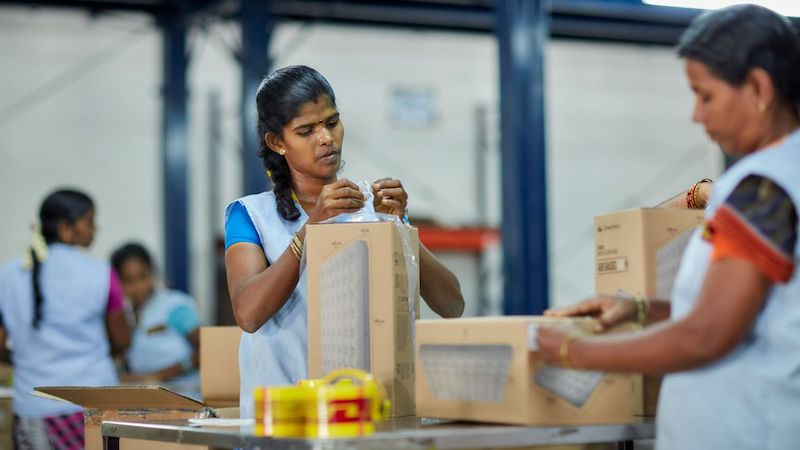Grow your business with the Discover newsletter
Logistics advice & insights straight to your inbox
Subscribe now
For global teams, maintaining a strong organisational culture is key to greater unity and cross-cultural acceptance. These are key ingredients to seamless productivity and efficiency. Here, we dive into the intricacies of organisational culture and its importance, and shine light on how DHL Express establishes and achieves success through it.
Organisational culture represents a company’s mission, goals, and principles. It reflects a company's values, expectations and practices that guide the improvement, efficiency, and health of the work environment. A good organisational culture nurtures employees and inspires them to give their best, in turn, delivering the results the company needs to be successful.
So how does DHL Express tie its workplaces to a common organisational culture, regardless of geographical boundaries?
An example of a successful organisational culture is like that of DHL Express. We are able to guide global teams – corporate and on the ground – to overcome cultural divides so interpersonal communication and workplace efficiency remain inhibited. Here’s how we do it:

The importance of diversity, equity and inclusion policies cannot be understated. With over 570,000 individuals working across more than 220 countries and territories, it is vital for us to overcome cultural differences to facilitate trust-based cooperation.
To maintain a strong organisational culture, both employees and individuals in leadership positions undergo training in diversity and inclusivity, which includes, among other aspects, materials on culturally sensitive communication techniques and ways to navigate cultural misunderstandings and avoid discrimination. This way, managers and employees can connect with internal and external teams with greater sensitivity and empathy, allowing for more meaningful teamwork and collaboration.
We want each member of our organisation to achieve their fullest potential, so this means creating avenues for them with appropriate autonomy to innovate and improve their workplace experience. Since our employees know best how to engage customers, we give them a significant role in designing our workflow and business processes. What stands out from this pursuit is the active collaboration between individuals from different walks of life who will lend their diverse perspectives to achieve a common goal. And, of course, to drive greater innovation, our competitive compensation cements motivation and inspiration.
Our open-door policy in communication further supports our engagement efforts. For example, through opinion surveys, feedback boxes and the Smart Connect mobile app, we hear directly from employees about how we can improve and what they suggest in that direction. Being able to identify and weed out any practices that widen the cultural divides can help us establish a stronger organisational culture and facilitate change when needed.
We also encourage our employees to upskill, providing them with training opportunities that keep them economically relevant. At the same time, we ensure such opportunities are accessible to all employees, regardless of their personal backgrounds, allowing us to create a learning culture in which everyone works together to build the company, a key facet of a strong organisational culture. For example, our Certified programme covers workplace skills and functional development modules to create greater interconnectivity of DHL business units, and therefore, better understanding of workplace processes.
Leadership plays a key role in employee development, which is why our Head, Heart & Guts training approach inspires managers to create a merit-based workplace that is also, most importantly, free from cultural discrimination. We want our leaders to establish a culture where achievements are rightfully recognised, and avenues for development are always accessible.
Anti-discrimination measures are key to a safe organisational culture. Only then can employees be trained effectively and perform their roles to the best of their abilities. Our Employee Relations Forum (ER Forum) encourages discourse among regional and country divisions so that anti-discriminatory practices and behaviours can be identified and tackled early on. We also encourage employees to connect with external organisations that represent their interests, with over 70% of our global workforce part of these agreements. Having open dialogues between these factions allows us to have meaningful and productive conversations when violations are reported by our employees. This helps us to strengthen our organisational culture and safeguard the welfare of our employees.
DHL Express employs individuals from different cultures, ethnic groups, religions, age groups and genders. This diversity is a critical element in the success of our international shipping operations.
Our deeply embedded organisational culture and practices mean that our employees treat one another respectfully, collectively overcoming the barriers they face. The workplace at DHL Express is, in short, highly collaborative. Watch how our teams work in action when you partner with us for your business’ logistical needs. Open a DHL Express account here to get started.